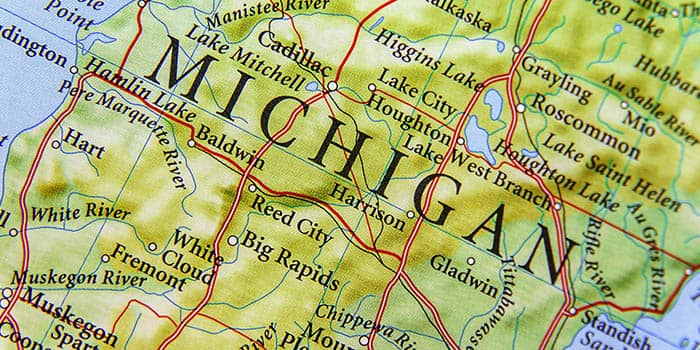
The payments by tribal operators to local revenue sharing boards and local state government units in 2023 marked a slight 1.4% decrease year-over-year
Currently, tribal operators represent an important part of the gambling market in Michigan. The state has established gaming compacts with 12 federally recognized Native American tribes, which operate a total of 23 land-based class III tribal casinos. The 23 casinos represent the majority of the sector in Michigan, considering that the only three commercial venues are located in Detroit.
Under the existing compacts between Michigan and the tribes, the operators are required to remit 2% of their net win for the year to local revenue sharing boards or local units of state government. Now, judging by a newly released report by the state gambling regulator, the Michigan Gaming Control Board (MGCB), the total revenue paid by tribal operators for last year marked a slight decrease year-over-year.
For 2022, tribal operators’ payments to local state government units and local revenue sharing boards hit $30,804,516. In contrast, for 2023, a decrease of nearly 1.4% is observed, considering that the tribal casino payments halted at $30,384,354.
The MGCB uncovered details regarding the payment for each tribal operator. We compared the data released by the regulator year-over-year, highlighting changes in the amounts reported by each operator.
Despite the overall decrease in the tribal contributions year-over-year, a majority of the tribes posted an increase in their payments for 2023 compared to 2022. The biggest increase was reported by the Sault Ste. Marie Tribe of Chippewa Indians, which recorded an uptick of nearly 18% in the amount paid for last year. Similarly, Bay Mills Indian Community’s contributions increased by 15% to $379,020 for last year.
In contrast to the increases, the Keweenaw Bay Indian Community, Lac Vieux Desert Band of Lake Superior Chippewa Indians, the Saginaw Chippewa Indian Tribe and the Pokagon Band of Potawatomi Indians reported decreases in their payments to local state government units and local revenue sharing boards in 2023.